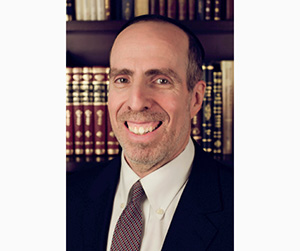
“Nein” (no), cried the gabai (sexton) at the German-Jewish synagogue in Switzerland. A guest was leading the congregation in prayer and added “v’yatzmach purkanei v’kareiv mishichei,” arousing the ire of the gabai. Chasidic Jews who pray nusach Sefard add these words, following in the footsteps of Sephardic Jews. Adherents of nusach Ashkenaz resisted this change to the traditional Ashkenazic Kaddish. Traditionally, these four words typified the differences between traditional nusach Ashkenaz and chasidic nusach Sefard. What is the basis of this divergence in practice?
An Ancient Dispute
This disparity long predates the split between nusach Sefard and nusach Ashkenaz. The Rambam (in the siddur included at the end of his Sefer Ahavah) and Rav Sa’adia Gaon include the words v’yatzmach purkanei v’kareiv mishichei” in their Kaddish. Others ancient sources, including the siddur of Rav Amram Gaon and the Machzor Vitry (which reflects the school of Rashi and his disciples), do not include this in their Kaddish.
A Rejected Suggestion
An Israeli Bible scholar suggested that this dispute reflects the Tannaitic dispute recorded on Sanhedrin 99a. Hillel (not Hillel the elder) boldly states that King Chizkiyahu had the potential to be Mashiach, but once he failed to realize his potential a Messianic king will not rise. Rashi (ad. loc. s.v. Ein Lahem) clarifies that Hillel of course subscribes to the idea of a Messianic era, but rejects the notion that there will be a Messianic king during that era. The Israeli scholar, in turn suggested that those who say “v’yatzmach purkenei v’kareiv mishichei” believe that there will be a Mashiach in addition to a Messianic era. Those who omit these words believe that there will be only a Messianic era and not a Mashiach, hence the omission of the plea to “sprout His Messiah.”
This approach is untenable. The aforementioned Gemara outright rejects Hillel’s opinion, noting that the Second Temple-era prophet Zechariah, who lived centuries after Chizkiyahu, prophesies about an individual Messiah who will be a “poor man riding on a donkey.” Zachariah demonstrates that the promise of a Messianic king did not at all expire after the passing of Chizkiyahu. Hence, the Israeli scholar’s explanation for nusach Ashkenaz’ omission of “v’yatzmach purkanei v’Kareiv mishichei” must be summarily dismissed.
A Suggested Explanation
Let us first explain the advantage of the Sephardic and nusach Sefard approach to include “v’yatzmach purkanei v’kareiv mishichei.” By including these words, one has the opportunity to express his yearning for Mashiach. Recall that the Rambam (Hilchot Melachim 11:1) teaches that not only do we believe in Mashiach but we also yearn for his arrival. Accordingly, it is quite fitting that Rambam incorporates “v’yatzmach purkanei v’kareiv mishichei” in the Kaddish that he includes in his siddur.
On the other hand, two objectives are accomplished by not including these words. First, it stresses the goal of the Messianic era and even the Messianic king, as articulated by Yeshayahu (Yeshayahu 2:11), “V’nisgav Hashem l’vado,” Hashem alone will reign over the world.
Moreover, the Kaddish paraphrases the Navi Yechezkel (38:23), who teaches that in the Messianic age “v’hitgadilti v’hitkadishti l’eini goyim rabbim” (I will be announced and sanctified among many nations). Indeed, Yechezkel repeatedly teaches that the kiddush Hashem will propel the arrival of the Messianic era (for example, 36:16-23 and 37:28). Thus, those who omit “v’yatzmach purkanei v’kareiv mishichei” wish for the Kaddish to focus on what will trigger both the Messianic era and Messianic king—the pressing need to correct the enormous chillul Hashem that exists prior to the arrival of Mashiach.
Conclusion
Whether or not one recites “v’yatzmach purkanei v’kareiv mishichei,” we firmly believe in both a Messianic era and a Messianic king. The question whether to include these four words hinges on whether the kiddush Hashem leading to our ultimate dream that “His name alone will be exalted” is merely the dominant or exclusive focus of Kaddish.
By Rabbi Haim Jachter
Rabbi Haim Jachter is the spiritual leader of Congregation Shaarei Orah, the Sephardic Congregation of Teaneck. He also serves as a rebbe at Torah Academy of Bergen County and a dayan on the Beth Din of Elizabeth.










